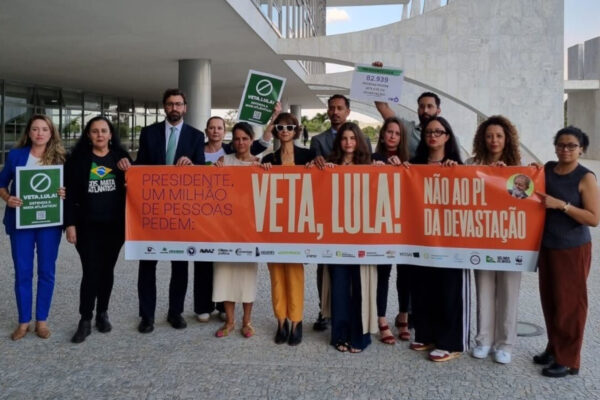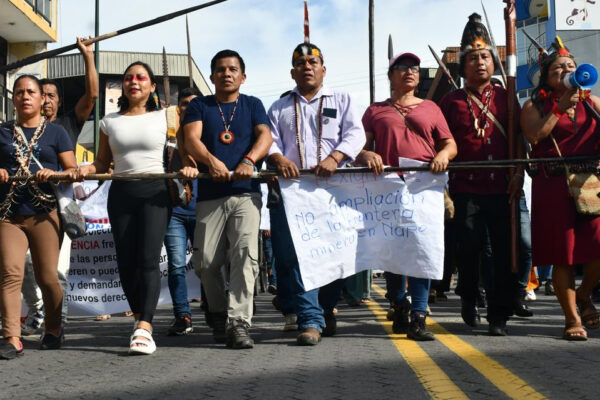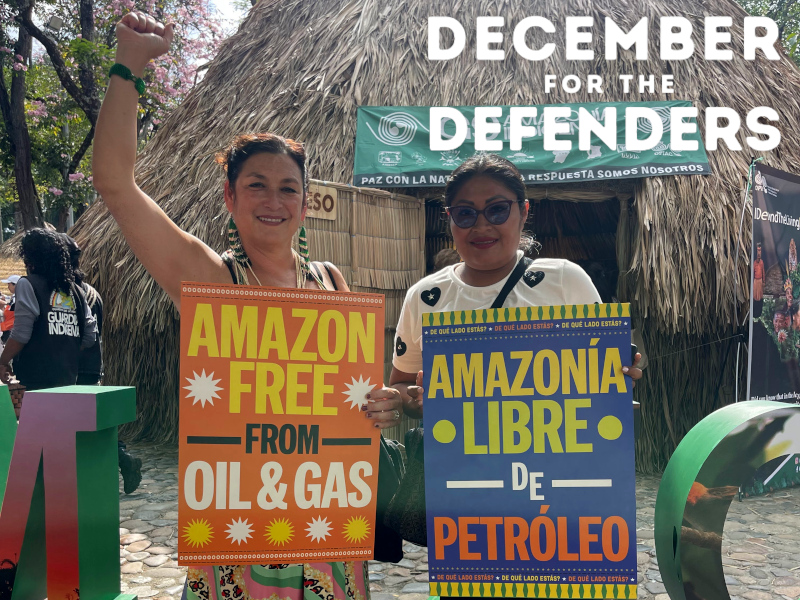Oakland, CA – Last Wednesday, in a shocking unprecedented event in Ecuador’s history, presidential candidate Fernando Villavicencio was assassinated in broad daylight as he left a campaign event, despite being under the protection of the security forces. This brutal murder is clear evidence of the widespread deterioration of public security in Ecuador, a trend that has accelerated dramatically over the last two years. In response, the Lasso government has declared a 60-day state of emergency across the entire nation while pressing forward with the scheduled election.
Villavicencio was known for his public stances against corruption in Ecuador, as well as contributing to the exposure of corruption within PetroEcuador. His recent denunciations concerning the growing power of organized crime and its links to the Ecuadorian government have also made headlines. His confrontations with former president Rafael Correa led him to seek refuge in the Sarayaku community in 2014.
In just five years, Ecuador has gone from being one of the region’s safest countries to one of the most violent. The country’s homicide rate has grown fivefold between 2016 and 2022, with an alarming 82% spike in 2022 alone. With a current rate of 25.9 homicides per 100,000 inhabitants, Ecuador’s statistics are now on par with countries like Colombia and Mexico. This drastic transformation can be attributed to multiple factors, including changes in the structure of the drug economy, the fragmentation of the FARC, impoverishment in the context of the pandemic, and the lack of effective policies to counteract this wave of violence. Although the violence is primarily concentrated in the coastal and border regions of the country, it is increasingly impacting Quito and across the entire nation.
“For human rights defenders and Indigenous organizations, the increase in violence implies several risks, as illegal and formal capitals tend to articulate and share interests against those who defend rights and territories. The expansion of criminal power is already penetrating Indigenous territories, particularly in the form of illegal mining and logging, leading to threats against those who resist it. Additionally, the increased use of hitmen and extreme violence by these networks can easily be used against rights defenders. Violence against defenders and Indigenous leaders often goes unpunished as the case of the murder of Eduardo Mendúa earlier this year shows,” says Raphael Hoetmer, Amazon Watch Western Amazon Program Director.
The declaration of a state of emergency has the potential to exacerbate repressive tendencies in response to the security crisis, further oppressing local communities striving to safeguard their rights. Under current President Lasso’s administration, 21 states of emergency have been declared, as a means to justify the militarization of territories that resist extractive activities. Regrettably, these measures have neither resolved the widespread violence nor effectively combat organized crime. The tragic murder of Fernando Villavicencio arguably has a strong impact on the electoral process favoring candidates advocating for a more stringent, militarized approach in the battle against organized crime.
“The danger now lies in our allies being trapped between the dual threats of organized crime on one hand and a militarized, repressive government on the other. We call upon the Ecuadorian State and human rights protection agencies to ensure that the deaths of Eduardo Mendúa, Fernando Villavicencio, and other advocates or politicians who, in the course of exercising their civil and political rights, have been silenced by organized crime, are not left unpunished. The situation in Ecuador demands urgent attention, concerted effort, and a firm, integral approach that prioritizes the rights and dignity of its citizens,” adds Hoetmer.
The Sunday election was announced in May when President Guillermo Lasso, faced with impeachment proceedings, exercised his right to dissolve Congress. In the same month, the Supreme Court mandated that the government include the Yasuní referendum in the upcoming election, culminating in a decade-long legal battle to present the referendum to voters. Ecuadorians will vote on whether they want oil drilling to continue in Yasuní National Park, one of the most biodiverse on the planet and home to the country’s last Indigenous communities in voluntary isolation, the Tagaeri, Taromenane, and Dukagaeri. A successful ‘yes’ vote for the referendum could protect 1 million hectares of rainforest and defend the rights of Indigenous peoples.














